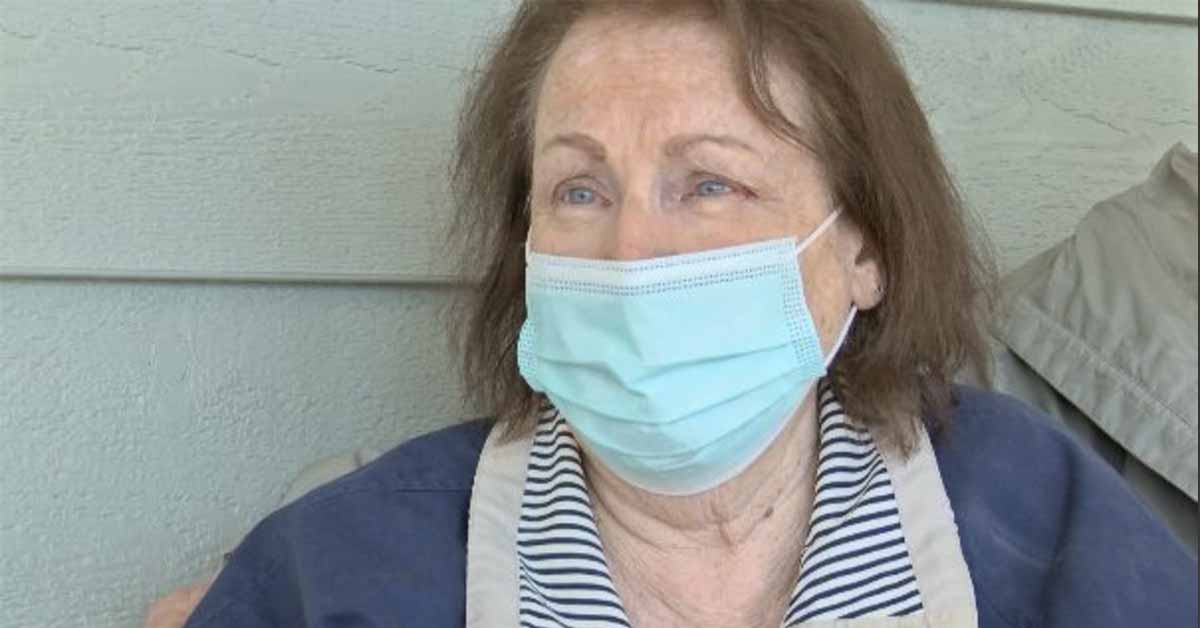Important note: This article is intended for those who understand vaccines as critical to maintaining their health and that of their families. It is NOT intended for those who are anti-vaccine and as such is NOT intended to foster a discussion on the merits of vaccines in this forum. It is also NOT intended to foster a discussion of the lethality of COVID-19 or the need for civic action to limit the spread of the disease.
73-year-old Deanna Bowersox of Fort Pierce, Florida went to get vaccinated against COVID-19 with her husband. Although he received the shot, Ms Bowersox was turned away due to her allergy to shellfish.
“Now, what am I going to do,” Ms Bowersox said. “I was upset. I was quite upset.”
Seeking a second opinion, she visited her physician who told her that because of her heart condition and allergy, she should forgo the vaccine.
“They said they would not give her the shot,” said Roscoe Bowersox, Deanna’s husband. “Her heart doctor suggested against the vaccine because it could be fatal.”
It should be noted that anaphylactic reactions to the two COVID-19 vaccines that have received Emergency Use authorization from the FDA remain extremely rare. A Centers for Disease Control (CDC) update issued January 15, 2021 reported 21 anaphylactic reactions resulting from the first 1,893,360 vaccinations of the Pfizer vaccine and a subsequent CDC update issued on January 22, 2021 reported 10 reactions from the first 4,041,396 vaccinations of the Moderna vaccine. All who suffered anaphylaxis for whom outcomes were available recovered.
Here is a WPEC-TV interview with Ms Bowersox:
According to the CDC, Ms Bowersox is eligible to receive either COVID-19 vaccine. Here is the agency’s current guidance regarding those with allergies and the COVID-19 vaccines:
If you have a severe allergic reaction to a COVID-19 vaccine
CDC has learned of reports that some people have experienced severe allergic reactions—also known as anaphylaxis—after getting a COVID-19 vaccine. As an example, an allergic reaction is considered severe when a person needs to be treated with epinephrine or EpiPen© or if they must go to the hospital.
If you have had a severe allergic reaction to any ingredient in an mRNA COVID-19 vaccine, you should not get either of the currently available mRNA COVID-19 vaccines. If you had a severe allergic reaction after getting the first dose of an mRNA COVID-19 vaccine, CDC recommends that you should not get the second dose.
If you have a non-severe allergic reaction to a COVID-19 vaccine
CDC has also learned of reports that some people have experienced non-severe allergic reactions within 4 hours after getting vaccinated (known as immediate allergic reactions), such as hives, swelling, and wheezing (respiratory distress).
If you have had an immediate allergic reaction—even if it was not severe—to any ingredient in an mRNA COVID-19 vaccine, CDC recommends that you should not get either of the currently available mRNA COVID-19 vaccines. If you had an immediate allergic reaction after getting the first dose of an mRNA COVID-19 vaccine, you should not get the second dose. Your doctor may refer you to a specialist in allergies and immunology to provide more care or advice.
If you have had an allergic reaction to other types of vaccines
If you have had an immediate allergic reaction—even if it was not severe—to a vaccine or injectable therapy for another disease, ask your doctor if you should get a COVID-19 vaccine. Your doctor will help you decide if it is safe for you to get vaccinated.
If you have allergies not related to vaccines
CDC recommends that people with a history of severe allergic reactions not related to vaccines or injectable medications—such as food, pet, venom, environmental, or latex allergies—get vaccinated. People with a history of allergies to oral medications or a family history of severe allergic reactions may also get vaccinated.
If you have had an allergic reaction to polyethylene glycol (PEG) or polysorbate
These recommendations include allergic reactions to PEG and polysorbate. Polysorbate is not an ingredient in either mRNA COVID-19 vaccine but is closely related to PEG, which is in the vaccines. People who are allergic to PEG or polysorbate should not get an mRNA COVID-19 vaccine.
If you have any concerns about your eligibility to receive a COVID-19 vaccination, please discuss with your doctor.
- Woman with seafood allergy denied COVID-19 vaccine in Fort Pierce — WPEC-TV
- Allergic Reactions Including Anaphylaxis After Receipt of the First Dose of Pfizer-BioNTech COVID-19 Vaccine — United States, December 14–23, 2020 — CDC
- Allergic Reactions Including Anaphylaxis After Receipt of the First Dose of Moderna COVID-19 Vaccine — United States, December 21, 2020–January 10, 2021 — CDC





